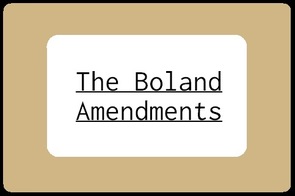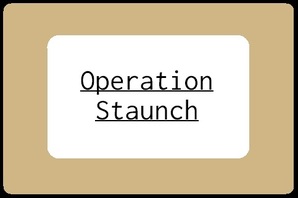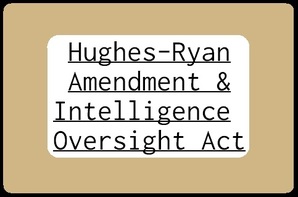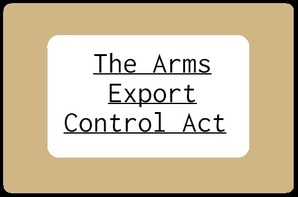|
Throughout the 1980s, Congress continued to curtail the increased power obtained by the executive branch during the Cold War to promote a more collaborative relationship.
|
"The Watergate scandal and exposés of CIA abuses at home and abroad raised alarms about an ‘imperial presidency’..." - Malcolm Byrne, Iran-Contra: Reagan's Scandal and the Unchecked Abuse of Presidential Power
|
As executive power peaked, the communist threat abated following Nixon’s attempts to restore relations with the USSR and China. For these reasons, Congress passed laws increasing its influence and oversight.
Click the buttons below to view specific laws that the Reagan Administration encountered.
|
Header Image: Photo by reagan.utexas.edu, "President Reagan addressing Joint Session of Congress on program for economic recovery." |



